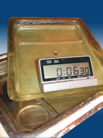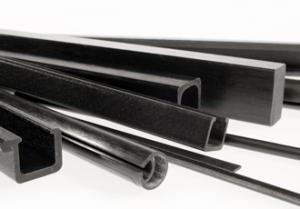Crystic Crestapol 1210 - A Tough RTM/Pultrusion Resin with a Low Cycle Time
2nd October 2007
Source:
Scott Bader Company Limited

The range of high performance resin systems available from Scott Bader Co Ltd has been extended with their latest Crystic Crestapol® range. Crestapol 1210 is designed for use in RTM (resin transfer moulding) and pultrusion applications, with a partially pre-accelerated grade (Crestapol 1210A) also being available.
Crestapol 1210 and 1210A are suitable for the production of diverse products such as; railway furniture, domestic household doors and garage doors as well as general buildings and construction products, including modular buildings. Fire resistance or other specific properties can be incorporated with the use of selective fillers, making the resins ideal for mouldings designed to handle demanding use in road, rail, plane or marine transportation applications. These resins are of particular interest where a combination of high application performance with manufacturing productivity is critical to ensure competitiveness.
They are low viscosity resins, with excellent toughness, which cure rapidly. In fact, production can be optimised to achieve a cycle time of as little as six to seven minutes for RTM. Rapid mould fill and de-mould can also be attained, even with large composite parts. The resins require the addition of a catalyst plus two accelerators (only one for Crestapol 1210A) to start the curing reaction.
The recommended catalyst is Akzo Trigonox® 44B used with Scott Bader Accelerator G, with dimethyl aniline (DMA) required in addition only for use with Crestapol 1210 resin.
The levels of catalyst and accelerators used are dependent upon the gel times required. Both resins can be highly filled with a variety of fillers, including aluminium trihydrate for fire retardant applications. Technical advice is available regarding suitable fillers, additives, geltimes etc. on request.
Crestapol 1210 and 1210A both cure very effectively at workshop temperatures (less than 18°C), attaining significantly better mechanical properties than conventional unsaturated polyester resins after 24 hours, so eliminating the need to do any no post-curing of the parts in many cases. Where the highest mechanical performance possible is needed, for maximum heat deflection temperature and modulus, Crestapol 1210 resins can still be post cured, by mouldings being oven cured for three hours at 80°C.
Crestapol 1210 and Crestapol 1210A can be supplied in 25kg, 200kg and one tonne containers and should be stored at low temperatures (less than 20° C) where possible.
They are low viscosity resins, with excellent toughness, which cure rapidly. In fact, production can be optimised to achieve a cycle time of as little as six to seven minutes for RTM. Rapid mould fill and de-mould can also be attained, even with large composite parts. The resins require the addition of a catalyst plus two accelerators (only one for Crestapol 1210A) to start the curing reaction.
The recommended catalyst is Akzo Trigonox® 44B used with Scott Bader Accelerator G, with dimethyl aniline (DMA) required in addition only for use with Crestapol 1210 resin.
The levels of catalyst and accelerators used are dependent upon the gel times required. Both resins can be highly filled with a variety of fillers, including aluminium trihydrate for fire retardant applications. Technical advice is available regarding suitable fillers, additives, geltimes etc. on request.
Crestapol 1210 and 1210A both cure very effectively at workshop temperatures (less than 18°C), attaining significantly better mechanical properties than conventional unsaturated polyester resins after 24 hours, so eliminating the need to do any no post-curing of the parts in many cases. Where the highest mechanical performance possible is needed, for maximum heat deflection temperature and modulus, Crestapol 1210 resins can still be post cured, by mouldings being oven cured for three hours at 80°C.
Crestapol 1210 and Crestapol 1210A can be supplied in 25kg, 200kg and one tonne containers and should be stored at low temperatures (less than 20° C) where possible.
Similar articles
More from Scott Bader Company Limited
- New microsite helps Crestapol resins go from strength to strength 12th February 2009
- Scott Bader Crestomer® structual adhesives training day in Norway for boatbuilders 22nd December 2008
- SCOTT BADER SUPPLY MATERIALS OF CHOICE FOR SUBSEA STRUCTURES 29th May 2008
- New anti-corrosion primer with heat resistant properties 9th January 2008












Write a comment
No comments